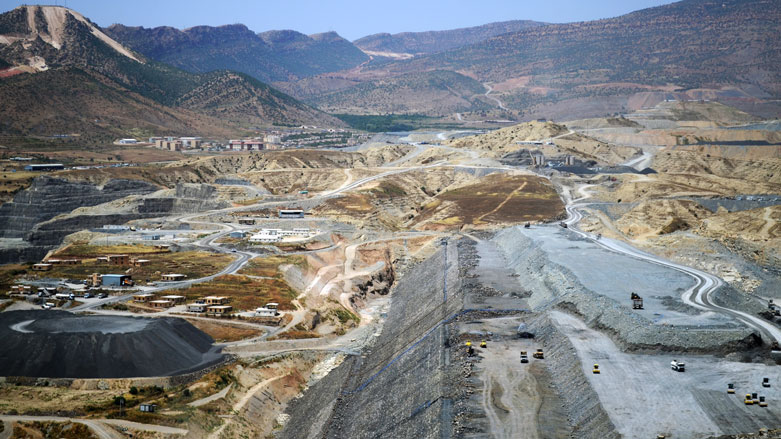Turkey starts filling dam that Iraq says will cause major water shortages
Turkey has started filling a controversial dam with water as part of a massive hydroelectric project that has been protested for years because it would submerge local residential and archeological areas and substantially decrease Iraq’s water supply.

ERBIL (Kurdistan 24) – Turkey has started filling a controversial dam with water as part of a massive hydroelectric project that has been protested for years because it would submerge local residential and archeological areas and substantially decrease Iraq’s water supply.
“They are taking steps slowly to decrease the reactions to water being held. That is why they are not informing the public,” Necdet Ipekyuz, a lawmaker from Turkey’s pro-Kurdish Peoples’ Democratic Party (HDP) told Reuters.
According to Ipkyuz and activists, satellite images from the past two weeks show that Ilisu Dam has begun to fill, rising above the level of at least one road. He added that a number of HDP lawmakers have recently attempted to visit the site, but were prevented by police.
When Reuters asked Ankara to confirm the claims, Turkey’s State Hydraulic Works (DSI), which oversees dam projects, referred questions to the Presidency. The Agriculture and Forestry Ministry said it was not available to comment.
In early 2019, President Tayyip Erdogan said that Turkey would start filling the dam in June, a year after it briefly held back water before backing down following complaints from Iraq about reduced water flows in mid-summer.
The effects of Turkish dams have long caused significant reduction of water levels in the Tigris River downstream in the Iraqi capital of Baghdad, Mosul, and in the marshlands of southern Iraq, raising fears of drought which would affect the country’s livestock and agriculture.
Iraq says the dam will create water shortages by reducing flows in one of two rivers which the country depends on. Roughly 70 percent of Iraq’s water supply flow from neighboring countries, namely Turkey and Iran.
The dam, which was designed to generate 1,200 megawatts of electricity for southeast Turkey, was first approved by Ankara in 1997.
Activists have been attempting to halt the project since, saying it would damage the country’s cultural heritage, since rising waters at the site of the dam are expected to submerge the 12,000-year-old town of Hasankeyf.
Local residents are being moved from the ancient town to a “New Hasankeyf” nearby and many historic artifacts have also been transported elsewhere.
On Wednesday, officials from Turkey, Iraq, and the Kurdistan Regional Government (KRG) took the first steps toward the construction of three dams to be built just south of the Turkish border in the Kurdistan Region's province of Erbil.